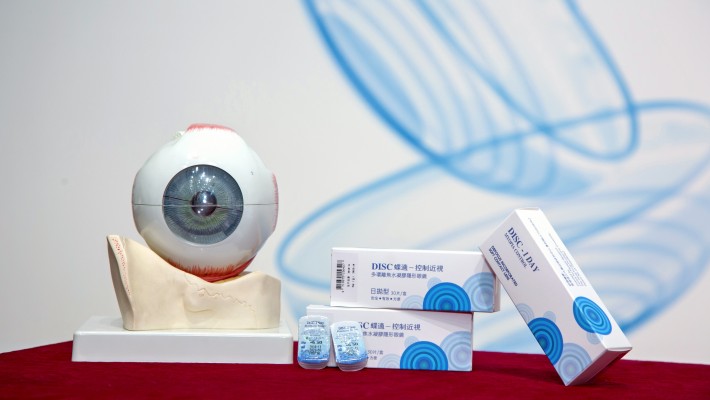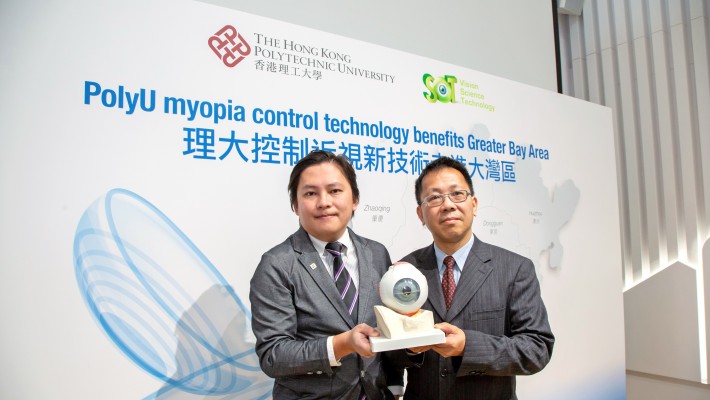1-Day myopia control contact lens available to benefit children
Last year, PolyU licensed its Defocus Incorporated Soft Contact (DISC) technology to a local start-up to bring the DISC lens that can slow myopia progression to the Hong Kong market. Following its success, a daily disposable version, DISC-1 Day, has recently been launched to provide users with a more convenient alterative. Dr Dennis Tse of the School of Optometry said that the two parties planned to introduce this product in the Chinese mainland to benefit millions of myopic children.
1. How can the DISC technology control myopia progression?
Myopia occurs when the eyeball is too long relative to the focusing power of the cornea and lens of the eye. Light focuses in front of the retina rather than on it, making distant objects appear blurry. PolyU researchers have developed the DISC lens, a multi-zone soft contact lens that provides clear vision and at the same time projects blurred, out-of-focus (defocused) images onto the retina to slow down axial elongation of the eye of the myopic patients.
In 2018, PolyU entered into a licensing arrangement with Vision Science and Technology Co. Ltd (VST) to provide tailor-made DISC lenses to users according to optometrists’ prescription via a network of locally authorised optometric clinics.
2. What prompted the launch of DISC-1 Day?
DISC lens has been well received since its launch last year. DISC-1 Day is developed to offer the myopia population with a more convenient choice.
3. What are the features of DISC-1 Day?
Upon optometric fitting assessment, DISC-1 Day lens is readily available for users and is for daily wear and disposal without the need for daily care. With power of myopia correctable up to 10.00 diopters, it is of the highest diopter with ultraviolet protection among all similar products in the market.
4. Will DISC lens be launched in other regions?
Upon the licence application approval by mainland authorities, DISC-1 Day will be extended for distribution in the Chinese mainland. It is expected that the product will be distributed to the authorised optometric clinics within a year, initially in the Greater Bay Area, and gradually extending across the nation. This will no doubt benefit millions of children in need.








